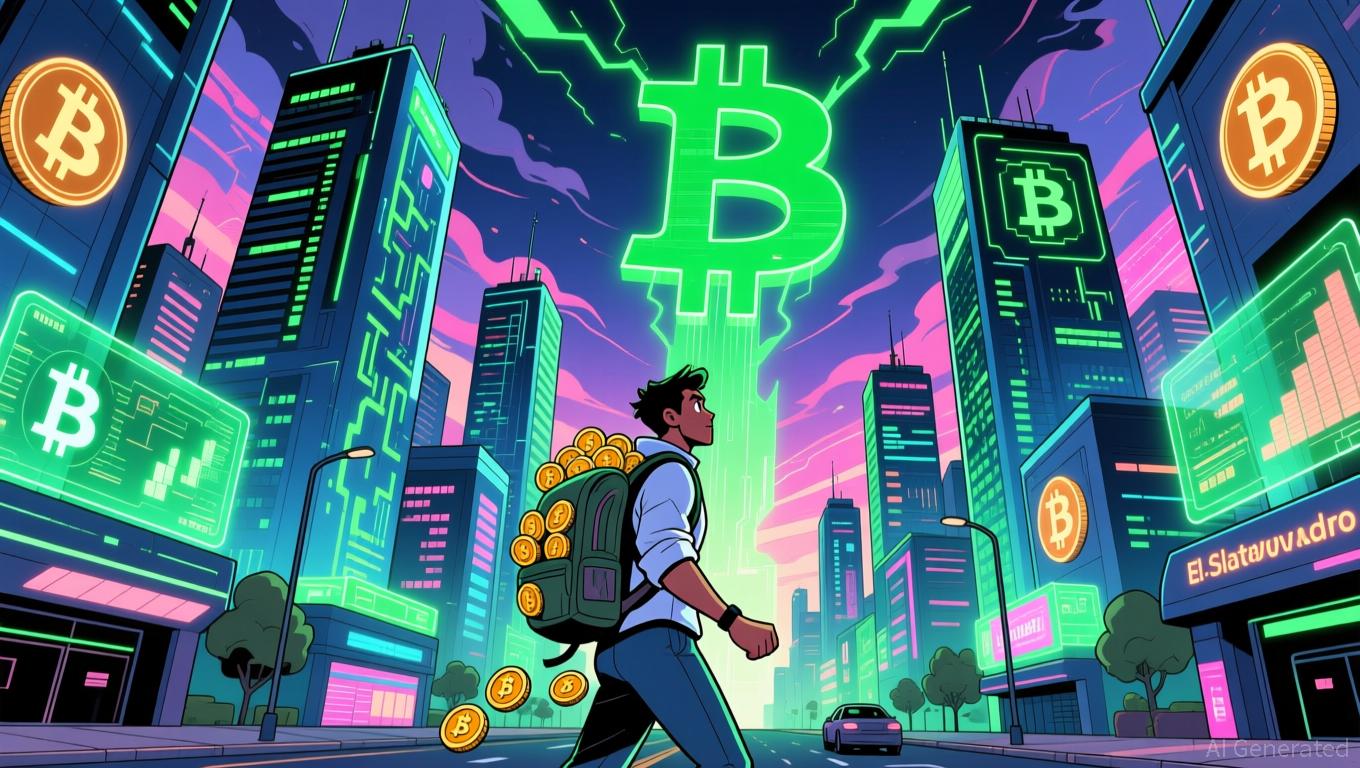Senate Crypto Legislation Sparks Cross-Party Debate on Supervision Versus Regulation
- U.S. Senate accelerates crypto market bill to establish regulatory clarity by 2026, with key committees voting as early as December. - Republicans, led by Tim Scott, aim to position the U.S. as "crypto capital" by aligning with the House's CLARITY Act, while Democrats, including Elizabeth Warren, demand stricter oversight of national security risks. - Bipartisan negotiations face hurdles as the SEC and CFTC's jurisdictional roles remain contested, while Canada introduces crypto-friendly policies to compe
The U.S. Senate is ramping up its push to complete a significant digital asset market structure bill, with major committees expected to vote as soon as December. The goal is to provide clear regulations for the cryptocurrency sector before the 2026 presidential race. Senate Banking Committee Chair Tim Scott, a Republican,
Yet, bipartisan talks are facing obstacles as Democrats, led by Elizabeth Warren, continue to advocate for tighter controls over crypto projects that could pose national security threats. Warren has frequently questioned Trump’s business connections to organizations such as
Progress is also being made toward regulatory certainty for banks dealing with crypto. The Office of the Comptroller of the Currency (OCC)

The Senate’s legislative process is further complicated by rival proposals from the Banking and Agriculture Committees. The Banking Committee’s draft
As discussions move forward,
Disclaimer: The content of this article solely reflects the author's opinion and does not represent the platform in any capacity. This article is not intended to serve as a reference for making investment decisions.
You may also like
Crypto’s Surge in Leverage Encounters Risk Management with Introduction of New Futures
- Cboe Futures Exchange launches Bitcoin and Ether Continuous Futures on Dec 15 to hedge crypto volatility. - Cash-settled contracts with cross-margining aim to mitigate risks from leveraged trades amid recent $168M liquidation events. - CFTC-aligned margin requirements and educational sessions highlight growing institutional interest in structured crypto derivatives. - Kraken’s $20B IPO and Trump’s Genius Act signal maturing markets and U.S. regulatory influence on global crypto governance. - Record lever

Bitcoin News Update: El Salvador Bets on Bitcoin as a Sovereignty Safeguard, Challenging IMF Conditions
- El Salvador's government defied IMF loan terms by purchasing $100M in Bitcoin , adding 1,090 BTC to its strategic reserves during a price slump. - Total holdings now reach 7,474 BTC ($676M), acquired through a "buy the dip" strategy despite IMF warnings about financial stability risks. - The IMF has not condemned the purchases but emphasizes compliance, while critics warn of fiscal instability and lack of public education on Bitcoin. - Bukele's administration defends Bitcoin as a hedge against inflation

AI’s $219 Billion Energy Sector Boom Fueled by Automation That Reduces Workforce
- AI-driven automation in energy management is displacing workers as the $219.3B market grows via predictive analytics and smart grid integration. - SoundHound AI accelerates agentic AI expansion with $269M cash reserves while C3.ai faces $116.8M losses and leadership instability. - Regulators struggle to balance AI's efficiency gains with labor displacement risks as blockchain and compliance tools adopt AI solutions. - The PwC developer's layoff exemplifies how AI's cost-cutting potential outpaces its abi

Trust Wallet Token (TWT) Price Trends in November 2025: Institutional Adoption and DeFi Collaboration Redefine Value Potential
- TWT's 2025 governance upgrades enhance institutional appeal through transparent DAO mechanisms and policy flexibility. - Trust Premium program incentivizes TWT usage via tiered rewards, creating flywheel effects for token demand and retention. - Institutional credibility and DeFi integration strengthen TWT's value proposition, stabilizing price dynamics amid market consolidation. - Recurring utility in gas discounts and tier upgrades establishes baseline demand, buffering against broader crypto volatilit